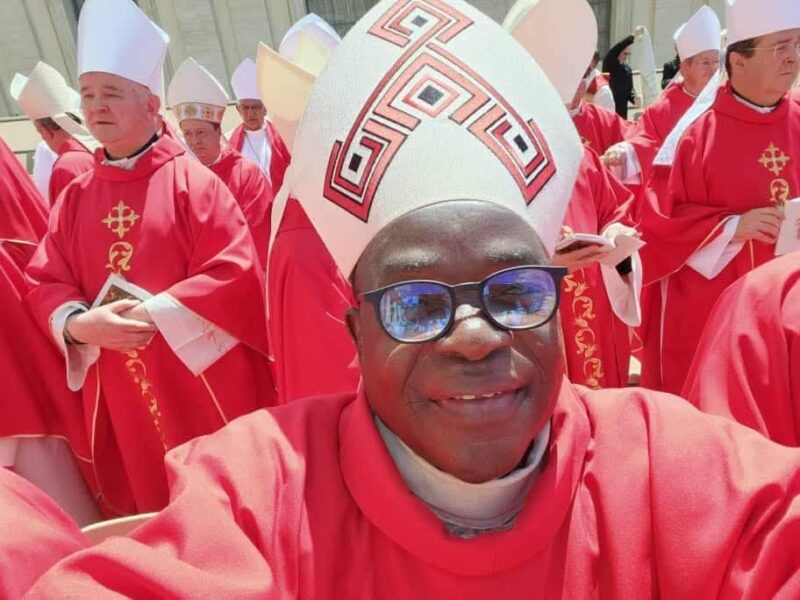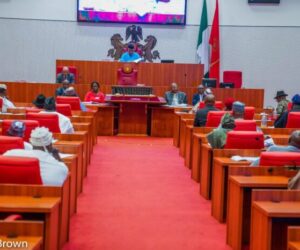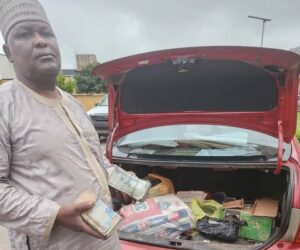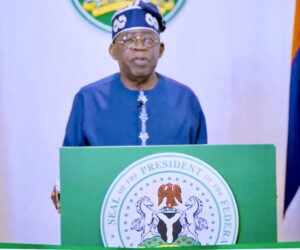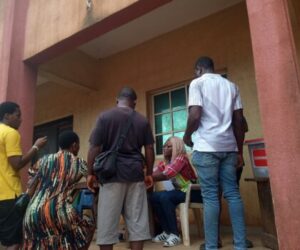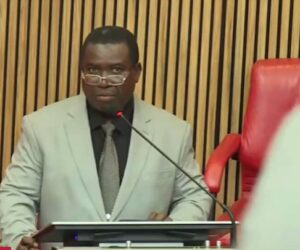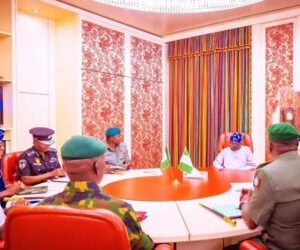Foremost social critic and Bishop Catholic Diocese of Sokoto, Rev. Father Matthew Kukah, has said that re-designating Nigeria as a country of concern will do the country more harm than good.
He said, while there might be some challenges arising from the activities of some criminal elements masquerading as proponents of Islam, “we carry out our religious services with no molestations”
The cleric, who said he wears his official regalia round the country, urged the international community to support the current efforts by the President Bola Ahmed Tinubu administration to resolve the current security challenges, and not the other way round.
Kukah spoke Tuesday at the launch of the ACIN 2025 World Report on Religious Freedom in the World.
The report which covers the state of Religious Freedom around the entire world between Jan 2023 and December 2024 shows more than 5.4 billion living today in countries without religious freedom.
The report identifies authoritarianism, religious extremism, ethno-religious nationalism and organized crime as drivers of religious persecution.
Addressing the gathering, Kukah said: “It is my view that re-designating Nigeria a Country of Concern will hurt the initiatives we are working on with the current government to collectively resolve the nagging problems of first, the persecution of Christians and of course the larger issues of ending the mindless killings of our citizens. Designating my country, Nigeria, a Country of Concern will only make our work in the area of dialogue among religious leaders in our country and elsewhere with the Nigerian state even harder. It will only increase tensions, sow doubt, open windows of suspicion and fear and simply allow the criminals and perpetrators of violence to exploit. What Nigeria needs now is more vigilance by the organisations such as the ACIN and civil society groups to continue to press for change and to deliberately work to end impunity.”
…On Boko Haram
“We are therefore not dealing with cases of people who are going around wielding machetes and looking for me to kill because I am a Christian. I travel in my official regalia as Bishop in and out of Sokoto. We carry out our religious services with no molestations. However, what is important is not to create the impression that we have no problems. We do have serious problems but these have escalated because the federal and state governments have, over the years allowed these problems to fester. The inability of the federal government and its security agencies to end these killings has created the condition for the genocide that has taken over many communities today. By whatever names we choose, the fact is that Nigerians are dying unacceptable deaths across the country. In many cases, they are targeted because of their beliefs but also because of their ethnicity. We are in the cusp of a weak state with clear lack of capacity to arrest the descent into anarchy.
“Nigerians feel vulnerable and unprotected irrespective of their faiths, ethnicity or social classes. A significant part of our social life has literally collapsed as many citizens now fear large gatherings for social events or prayer. It is important to restate that things were never really always like this. The last 8 years of the Buhari administration marked the worst phase in the history of interfaith relations in Nigeria, especially relating to violence against Christians and their exclusion from power. That administration gave oxygen to jihadists by virtue of its policies which overtly favoured Islam and northern Nigeria.
“The President himself was a Muslim, ensured that the Senate President, the Speaker, the Deputy Speaker, the entire leadership of security was entrusted to the hands of only Muslims, almost all from the north. This was a departure from the sensibilities that had characterized power sharing in Nigeria. I argued then that in reality, the difference between President Buhari and the Jihadists was that he was using a pen while the jihadists were using weapons of violence against Christians. I also stated that under Buhari, to gain power, it was more important to be a northern Muslim than to be a citizen of Nigeria,” Kukah further said.
…On banditry, others
He said: “There have been serious concerns nationally and internationally over the deterioration of security matters in Nigeria. The reports have focused on the tragic outburst of violence that has turned huge swaths of the Nigerian landscape into a huge killing field. For over 15 years now, these murderous gangs of Islamicists and jihadist groups have found their way into our country, wreaking havoc, destroying lives and properties, ravaging farmlands and leaving huge parts of the country empty of human existence. Along with this, a culture of uncontrolled banditry, thousands of communities have been destroyed, with thousands of lives lost. The country has witnessed an unacceptable surge in internal displacement in most parts of the north especially around the middle belt states.
“The biggest challenge for us is the appropriate language to use in describing this tragedy. The reactions have been confusing. Early narratives spoke of farmer-herder clashes, climate change, cattle rustling, outright criminality, etc. With the emergence of Boko Haram and the targeting of Church structures, destruction of schools, hospitals, the kidnapping of priests, the religious, seminarians and other pastoral agents, the murderous gangs invoking the words like, allahu akubar as their anthem of death, there was no other way of speaking of persecution of Christians by these jihadist groups rather than calling them religious persecution targeted at Christians. Then came the sacking of communities and the occupation of swaths of lands by these terrorist and murderous groups.
“These groups would later target Muslims who did not believe in their brand of Islam. Today, the floods of blood in Nigeria have no boundaries. This is why the debate over what is happening to us has become so confusing within and outside Nigeria. Although we cannot find the right words, the simple truth is that Nigerians are dying for a living.
“The confusion over the appropriate language is understandable. The greatest area of concern is how much this tragic turn of events has disrupted years of Nigeria being a colourful tapestry of wonderful human relationships marked by great friendships among our people, across faiths and ethnicities. For example, I live in Sokoto, right in the womb of Islam. If we were dealing with outright persecution of Christians on grounds of identity, both myself and my small flock would not exist.”
Recalling his ordination some 14 years back, Kukah said: “For example, on September 8th, 2011, the ceremony of my ordination and installation as the Bishop of Sokoto was marked by this exemplary show of collaboration between the Diocese, the state government and the Sultan who personally enthusiastically provided accommodation for my guests during the occasion. I received the gift of a new Prado Jeep from a Muslim friend of mine who said to me, Bishop; This is my gift to you for your pastoral work in your vast Diocese! On the 30th of September this year, the Sultan himself was physically in the premises of our Secretariat where we commissioned an ICT facility with almost 300 computers for youth and children. This is not to say that there are no problems, but our daily lives should be defined by a better narrative.”
While slamming successive American governments in their handling of the Nigeria’s situation, he said: “I believe that the Obama and Biden administrations were complicit in the way they handled the fight against Boko Haram under the Presidency of Goodluck Jonathan. The country was already making progress. The decision to block Nigeria’s access to the required weapons to end this violence by the Obama administration and their drive to impose President Buhari on Nigeria pushed back this fight.
“I therefore appeal to President Donald Trump who is already working hard to show that a peaceful world is possible with his historic achievement in the Middle East to lift the ban and allow Nigeria access to the military tools it requires to free our country from the stranglehold of these evil men. I believe this will set us on a course to end the violence that extremist groups and merchants of death have inflicted on us.”
…Plea to FG on the report
Kukah urged the federal government to take up the challenge of restoring national harmony and unity in the country.
“We believe that despite our challenges, there is a window of opportunity to the religious leaders in Nigeria to map out the best strategies towards national harmony and integration. With the historic developments in the Middle East coming in this year of Hope, the world has a chance to reverse the vicious hold of all forms of religious extremism threatening a peaceful world order. Nigeria, a country of well over 200 million people of faith, can make a great contribution towards this quest for world peace if we can rid our country of the virus of religious extremism. We should be supported and encouraged in this effort and not punished. On our part, the Nigerian government must urgently design a robust template to restore confidence in our country by taking the concerns expressed in this Report in good faith,” he further said.

